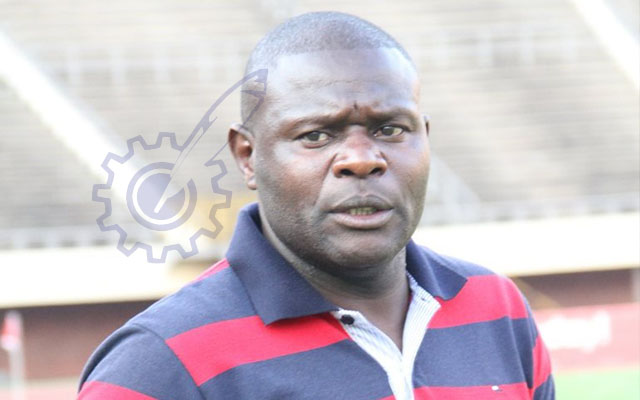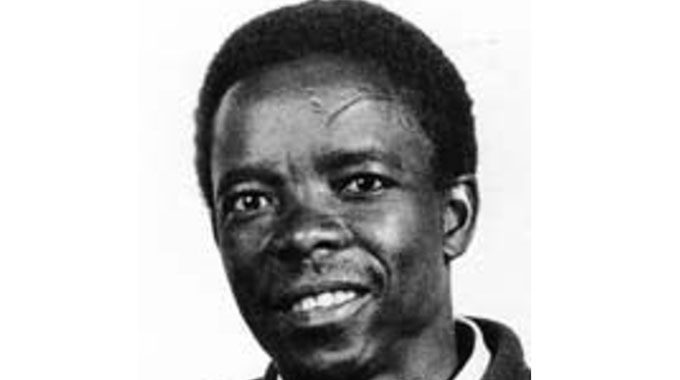Slowed by ‘spineless’ back

Leroy Dzenga Features Writer
When he was five months old, Shepherd Muchenje underwent an operation as doctors corrected a condition called spina bifida — a condition which exists as a result of defects on the spinal cord and bones of the spine.
The procedure was successful, the only reminder he had of his incisive past was a slight limp in his step and probably scars from the surgery.
Despite being born with a life threatening condition, Muchenje (28) had a normal childhood, grew to become a session instrumentalist and a freelance television script writer.

Muchenje’s recent x-ray image
Twenty eight years later, he got a reminder of his painful past as spinal problems re-emerged disguised as minor discomfort.
“The problem started in 2016, I thought they were just mild back pains and ignored them. As someone who barely fell sick I ignored the pains for quite some time,” he said.
What he pushed aside as mere discomfort, turned out to be bigger than he had appreciated.
In February 2017 I noticed that my left leg was getting weaker and sought medical attention,” Muchenje said.
The visit, was going to be one of the many in quick succession as his condition kept deteriorating.
“At first I thought my leg had a problem but the neurosurgeons at Parirenyatwa told me to get an urgent x-ray. The x-ray scan results showed that I have scoliosis,” he said.

A recent image of Muchenje’s back bearing a scar from his childhood surgery
According to the Scoliosis Research Society, this is when a person’s spinal curves are not subtle causing side-to-side spinal curves that also twist the spine. This is when a person’s spine is “S” or “C” shaped.
Knowing the condition would naturally mean that treatment starts, but the condition is rare and currently very few neurosurgeons can perform corrective surgery in Zimbabwe.
“At Parirenyatwa Hospital I was meant to see Dr Mandizvidza but he was not available. I then opted to see Dr Makarawo who is one of the top neurosurgeons in Zimbabwe and he told me no one could do the surgery in Zimbabwe. This is when I began looking for solutions outside Zimbabwe,” Muchenje said.
Internationally, people who hold the expertise necessary for his reprieve are there, but the cost is a far cry from what the Muchenje family can afford at the moment.
“The cost of the whole procedure is $30 000, this includes airfare, accommodation, initial consultations, surgery and post-operation care,” said Muchenje.
He added; “We cannot afford to foot the bill on our own, we need all the help we can get. Right now I try and help with household chores as I seat because I hate being idle. But what hurts me is that I am no longer able to perform simple tasks like going to work as walking is painful.”
Currently he has been suppressing the pain hoping that someone comes through and help finance his overdue trip to India.
“I was prescribed an anti-inflammatory drug called Celecoxib, it does not need prescription so I have been buying them regularly. The good thing is thre is no need for prescription to buy them,” said Muchenje.
He uses pills worth $6 every week as he hopes that his reliance on painkillers will end soon.
“Right now I am unable to work, walking is very painful. My left leg is in a permanent state of numbness — it’s stiff and hard to bend. Sometimes I can’t feel my feet.”
The more time he spends away from his job and functionality, the more he feels like options are running out for him.
“Before I fell sick, I was working on a sitcom for ZBC and doing shows. I miss my life and I can’t wait to get it back. Even if raising the money still looks like a mammoth task, I have hope that some help will come along,” Muchenje said.
Seeing that the money they need cannot be raised without help, Muchenje’s family has launched a campaign aimed at raising funds.
An online campaign under the name #BryceWillWalkAgain has been launched by his friends and family determined to raise the money for his medical recourse.
They are using their social media accounts to try and appeal for assistance from the wide network of users on different platforms.
“We are working on a fundraising campaign hoping to raise the money needed for Shepherd’s surgery. The progress has been slow but we are hoping that our continued efforts will yield fruit,” Shepherd’s younger brother Marshall, told The Herald.
“At the moment we are following any lead that may help us get the money early, we are reaching out to corporates, NGOs and individuals soliciting for help because it is painful to see Shepherd in the state he is in,” he said.
Their attempts to raise money through online platforms has been met with challenges, internet crowd funding portal GoFundMe hosted Muchenje’s donation plea for about a week before they took the page down, citing that Zimbabwe is part of countries on the sanctions list and therefore remittances cannot be processed.
Despite the setbacks, the Muchenje family and Shepherd’s friends continue to work towards raising awareness as well seeking funds to make the trip a reality.
They have raised $700 so far, the figure is still a far cry from the ideal amount but Muchenje has not lost hope. He is optimistic and in good spirits.
Muchenje cannot wait to continue with projects he was working on which he said were at an agonisingly advanced stage.
Other people in the past have been assisted by Zimbabweans in their pursuit for specialised medical attention beyond the country’s borders and Muchenje believes his story will not be any different.
Feedback: [email protected]








Comments